Egyptian Pharaohs and Society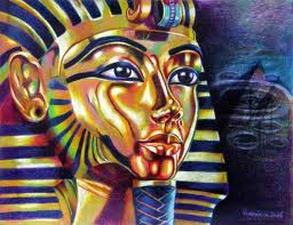 This week we learned about the king of ancient Egyptian society - the Pharaoh. He (or she) was thought to be a living god and the earthly representation of the all powerful sun god, Amun-Ra. Pharaoh was god, judge, and lawmaker and by far the wealthiest citizen. We discussed the organization of society in ancient Egypt, which was like a pyramid of power - pharaohs at the top followed by pharaoh's family, assistants, priests, and tax collectors, then scribes. Skilled workers came just above farmers and peasants who made up the wide base. All were expected to provide a portion of their labor and crops to Pharaoh. There was very little movement between layers and most people remained in the category of their birth family. We spent a few minutes questioning whether that structure was "fair" and how it differs from our own way of life. I love the insights and observations children this age make about such big questions! Ask them to share these with you at home. Students also colored templates of Pharaoh headdresses and headbands which they will complete next week and bring home. Weigh Your Heart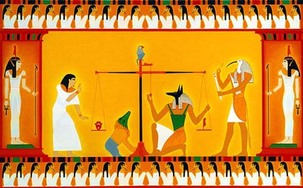 In preparation for our upcoming units on pyramids and mummies, we learned about ancient Egyptian rituals at death. To achieve everlasting life the Egyptians believed people had to have 'kind hearts'. The god Osiris and his daugther Maat would meet you at the gate of the underworld to weigh your heart on a scale. If it was lighter than Maat's Feather of Truth, you would gain eternal life. Books of instruction were created to help people learn to become wise and good. I read the students a sample of one of these ancient rules of kindness and then asked each of them to think of a good rule to follow for keeping their hearts "as light as a feather". We heard some wonderful ideas about helping others, and this also provided an opportunity for students to practice forming letters, spelling words, and writing complete thoughts. We will continue to work on small writing assignments throughout our studies, with each student working at their own level. Students have also been doing copywork at the beginning of class. This week they wrote words from our Word Wall and figured out the number of syllables in each word. You might find them clapping out syllables at home - they really enjoy that activity! Egyptian Fun and GamesThe children in Ancient Egypt loved to play games, just like we do. In our afternoon class this week we learned about some of the different things those children long ago did for fun, and then we made our own Senet boards, and played Senet together. The children of Ancient Egypt made many of their own toys. Next week, the children can choose to bring a toy that they have made themselves to share with the rest of us. We will also be learning about the sledge, a simple machine that was used to help build pyramids, so please send in more empty toilet paper rolls. They will be very useful!
We continue to enjoy working with math materials in class as well. Adding numbers in the thousands is a favorite past time! Comments are closed.
|
Categories
All
Archives
May 2016
|

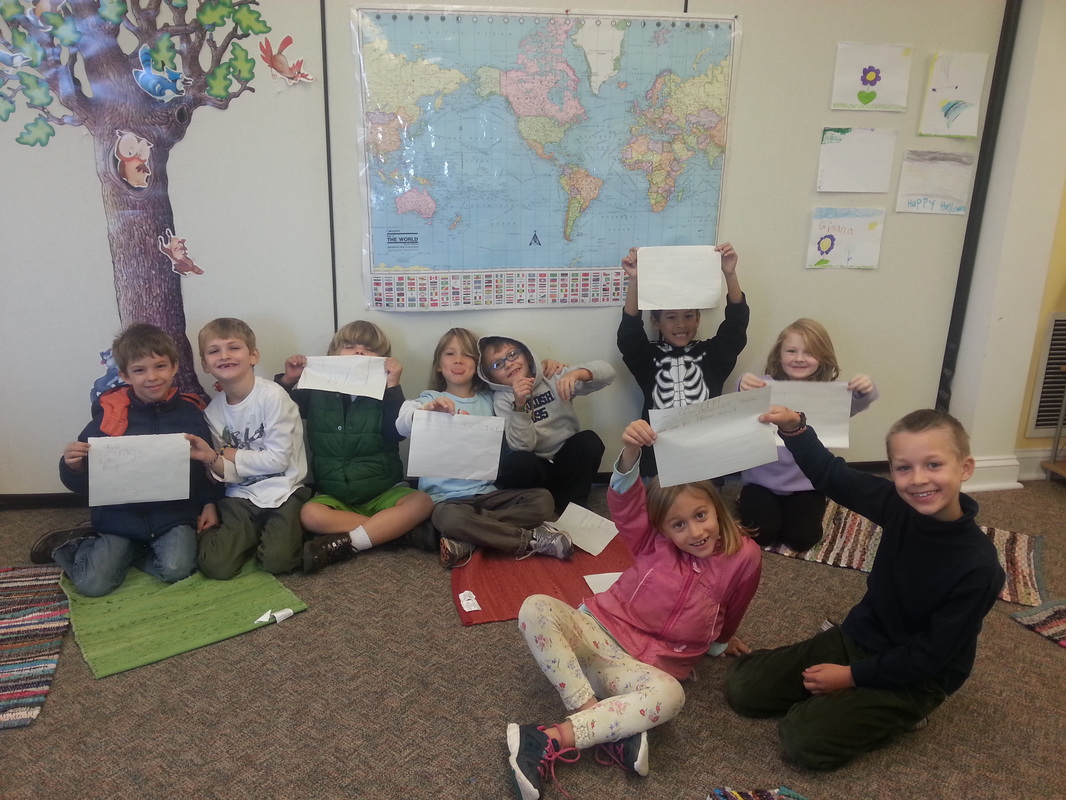
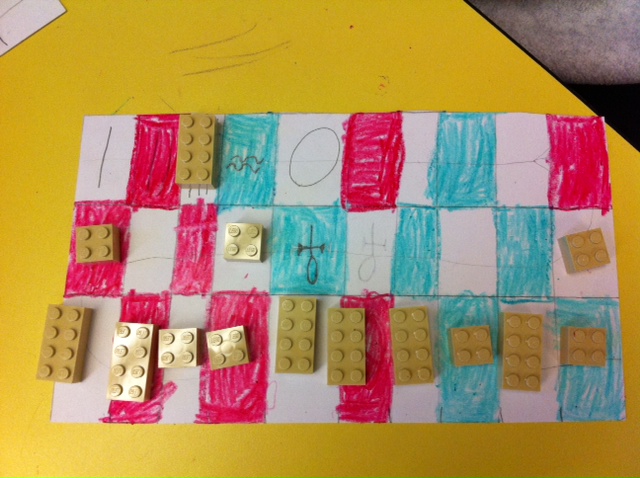
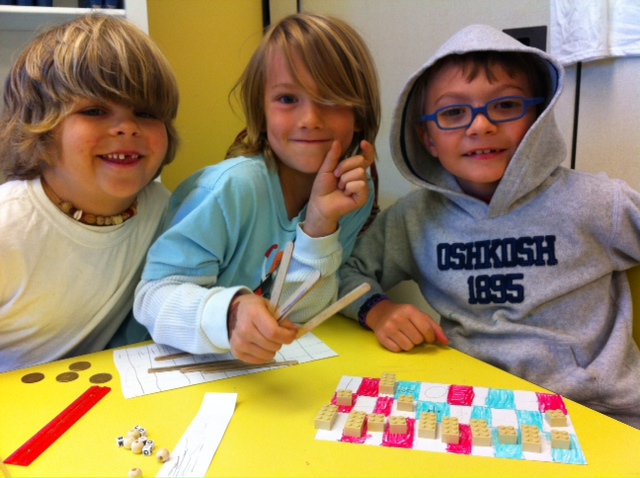
 RSS Feed
RSS Feed